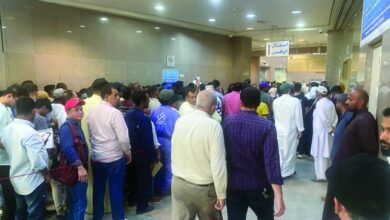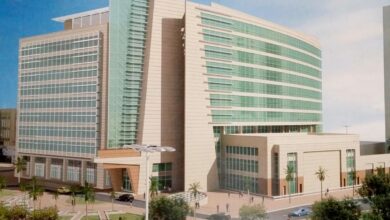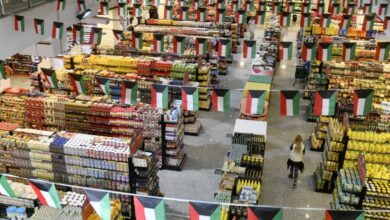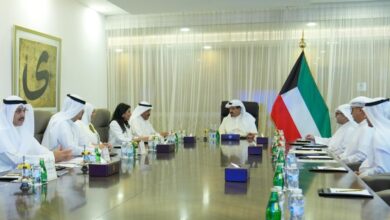Kuwait, India pioneering academic collaboration
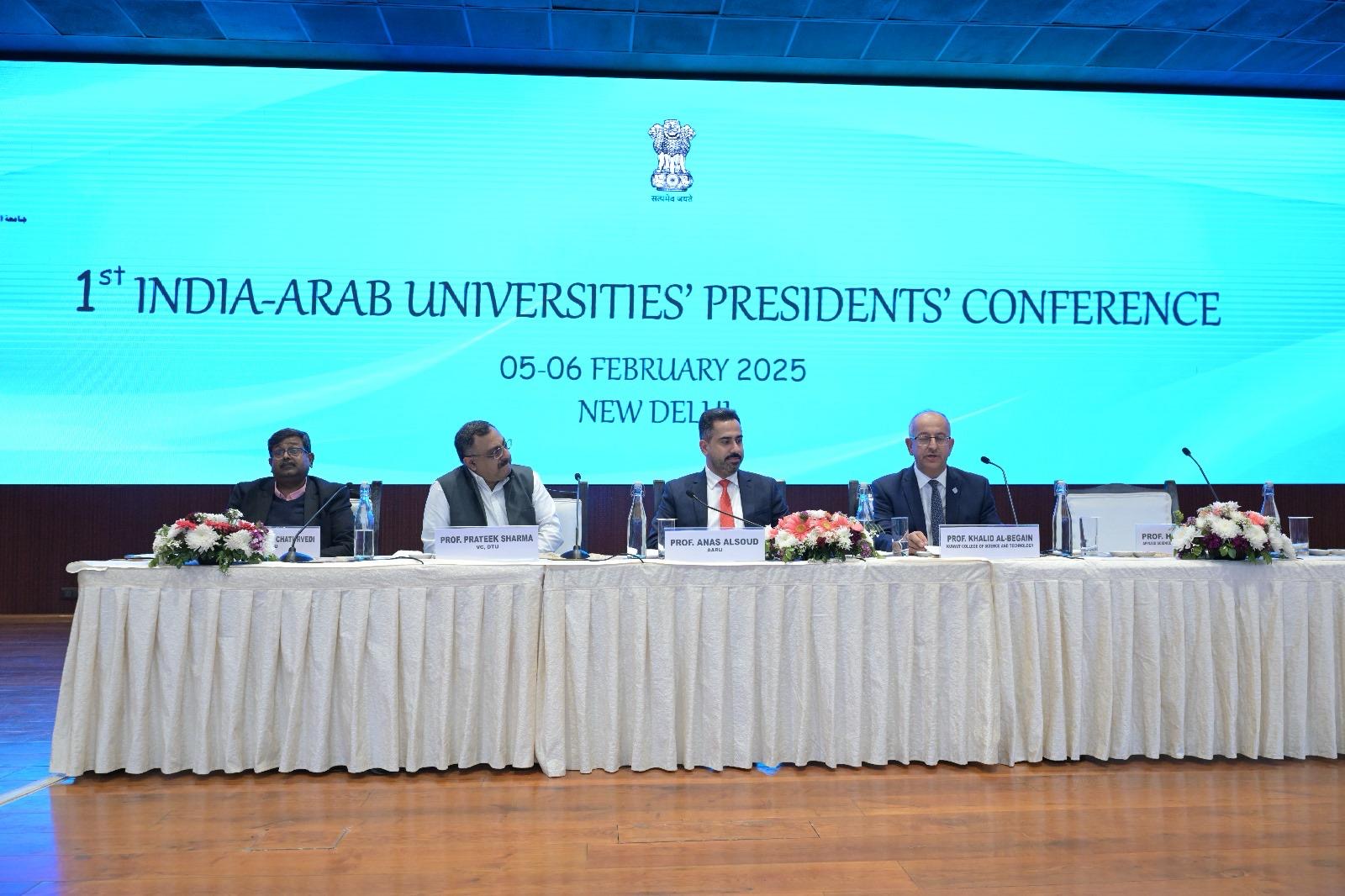
By Professor Khalid Al-Begain
Special to The Times Kuwait
The 1st India-Arab Universities’ Presidents’ Conference, held on 5–6 February at Sushma Swaraj Bhawan in New Delhi, marked a significant milestone in fostering academic collaboration between India and the Arab world. Organized by the Indian Ministry of External Affairs in association with the University Grants Commission (UGC) and the League of Arab States (LAS), the conference brought together over 100 Indian and more than 45 Arab university presidents to explore new avenues for cooperation in higher education.
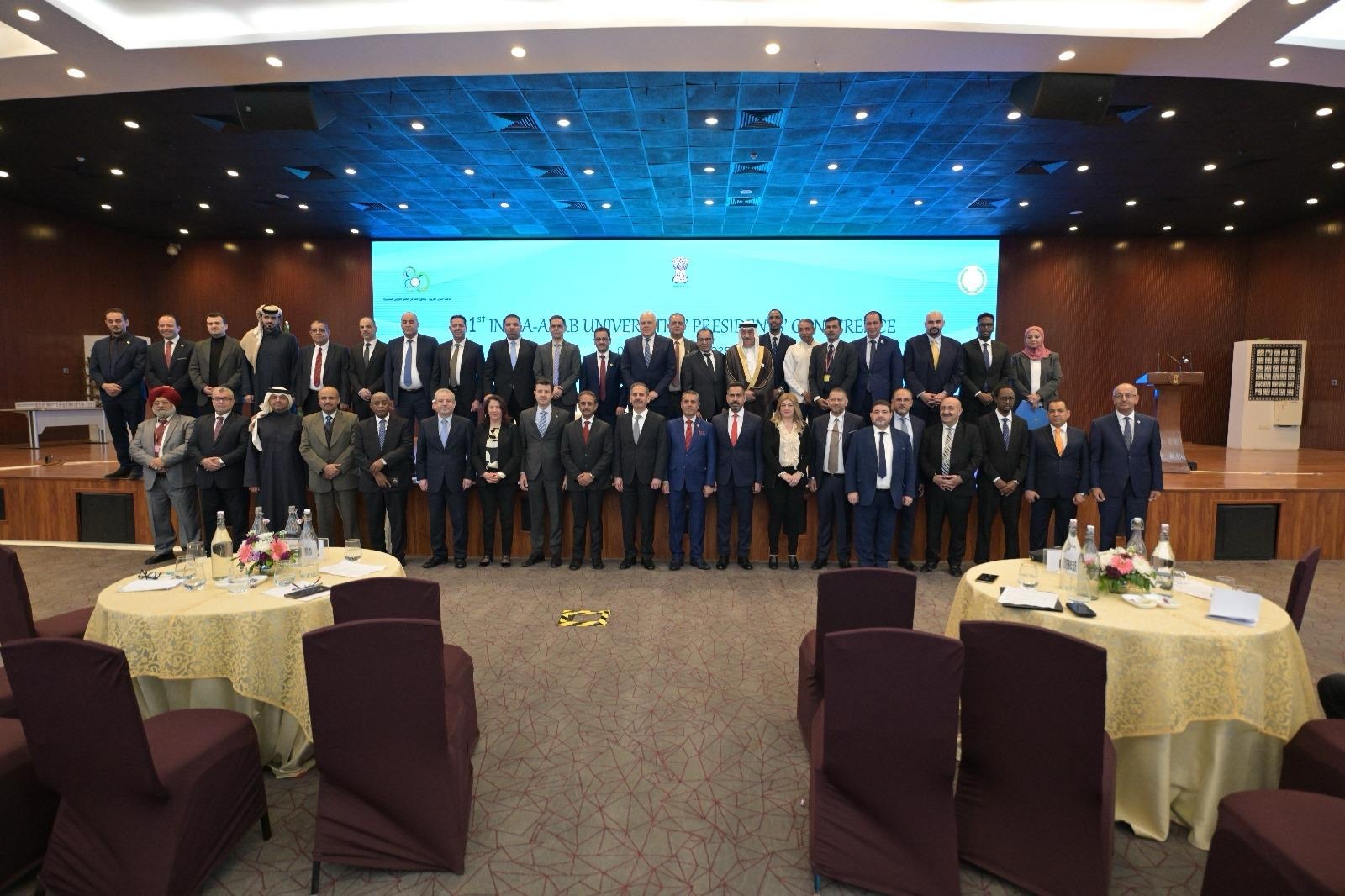
The conference was inaugurated with a keynote address by Indian Minister of State for External Affairs, Shri Kirti Vardhan Singh and insightful contributions by the Secretary General of the Association of Arab Universities. Dr. Amr Ezzat Salama, which set the tone for the event. For his part, Minister of Education from Libya, Imran Muhamed Al-Qeeb, delivered a special address emphasizing the importance of educational collaboration. The opening session also featured welcome remarks from Chairman of UGC, Prof. Mamidala Jagadesh Kumar,and the Director of Education and Scientific Research of LAS, Farraj Aljmi.

The conference discussions were organised into sessions that included detailed session highlights covering various areas of potential collaborations. Among the topics discussed were:
Session 1: Higher Education and Skill Development Cooperation: Moderated by an Indian representative, this session featured speakers like Prof. Anas Alsoud from the Association of Arab Universities and Prof. Amal Ghazal from the Doha Institute for Graduate Studies, Qatar. Discussions focused on the potential for development and prosperity through educational collaboration.
Session 2: Innovative and New Areas of Academic Cooperation: Moderated by Prof. Suhail Abdullah from the University of Baghdad, Iraq, this session explored new approaches in education, including the use of digital platforms. Speakers included Prof. Mohamed Sami from Cairo University, Egypt, and Abdilkarim Ahmed from Simad University, Somalia.
Session 3: Academic Cooperation – Mutual Recognition of Degrees: This session addressed the current status and challenges in recognizing academic qualifications across borders. Speakers included Prof. Youssef Haik from the University of Sharjah, UAE, and Prof. Mohamed Diab from Qatar University.

Session 4: Promoting Joint Scientific and Technological Research : Moderated by Professor Anas Al Soud, Executive Director of the Association of Arab Universities, this session highlighted opportunities in AI, Quantum Computing, and Biotechnology. I had the honor of participating in this panel alongside Prof. Hatem Elmasri from Applied Science University, Bahrain. We discussed the importance of creating a robust framework for joint research initiatives, which could lead to groundbreaking innovations and advancements.
Session 5: Framework for Promoting Faculty & Student Exchange: This session focused on promoting cultural exchange and academic collaboration through structured exchange programs. Speakers included Prof. Amer Alhinai from Sultan Qaboos University, Oman, and Prof. Imad Dawoud Al-Zeer from Palestine Ahliya University.
Discussion on Outcomes: Moderated by representatives from UGC and the Arab Universities Presidents Association, this session facilitated an open discussion on the outcomes and recommendations of the conference.
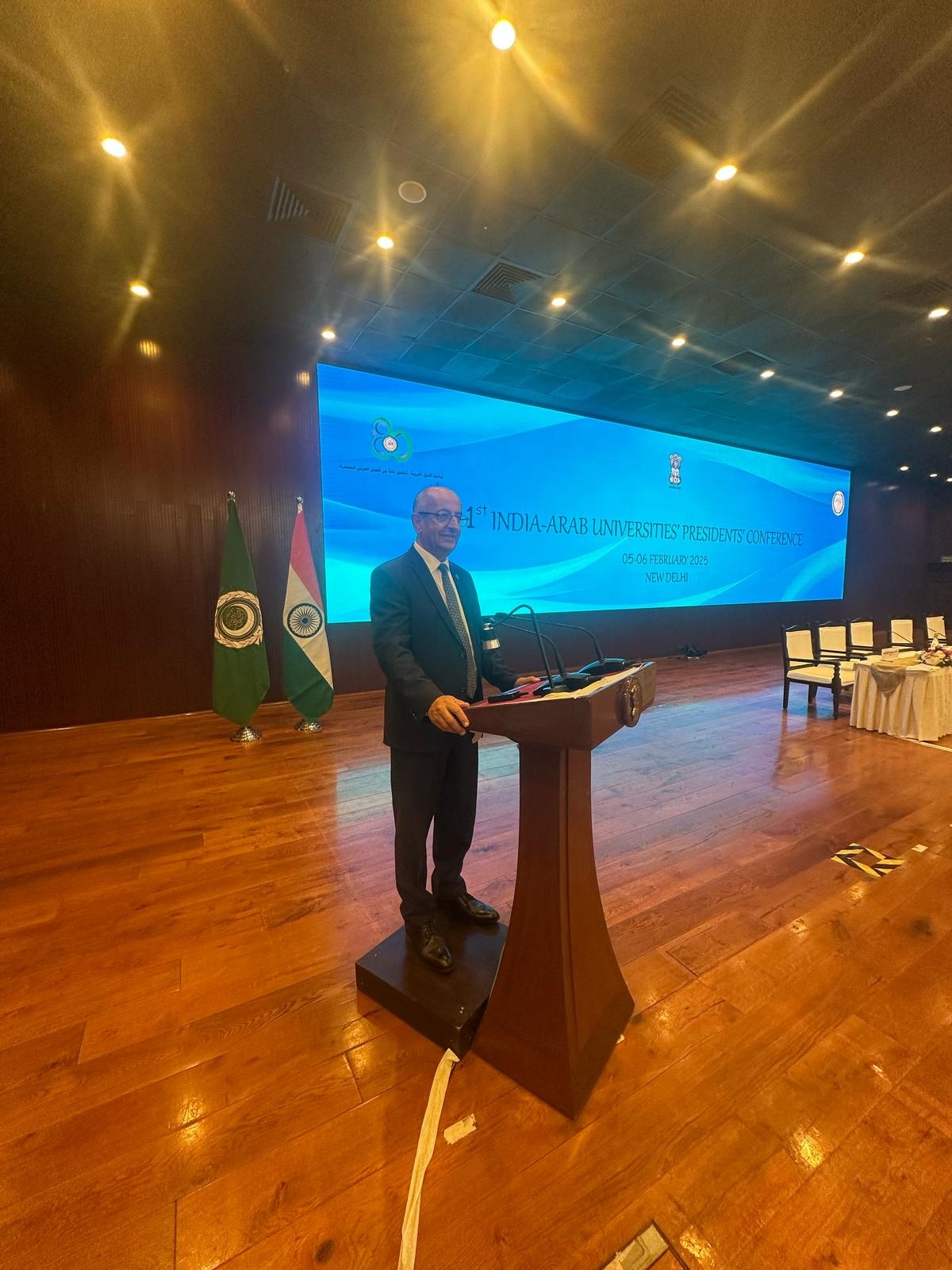
In the Closing Ceremony, the conference concluded with valedictory remarks by the Secretary (CPV & OIA), Ministry of External Affairs, India.
It is noteworthy that Kuwait College of Science and Technology (KCST) was the sole institution representing Kuwait at the conference. KCST was presented as a model for collaboration between India and the Arab world, given that its initial curriculum was established by professors from The Indian Institute of Technology – IIT Delhi. This collaboration underscores the potential for academic excellence through international partnerships.
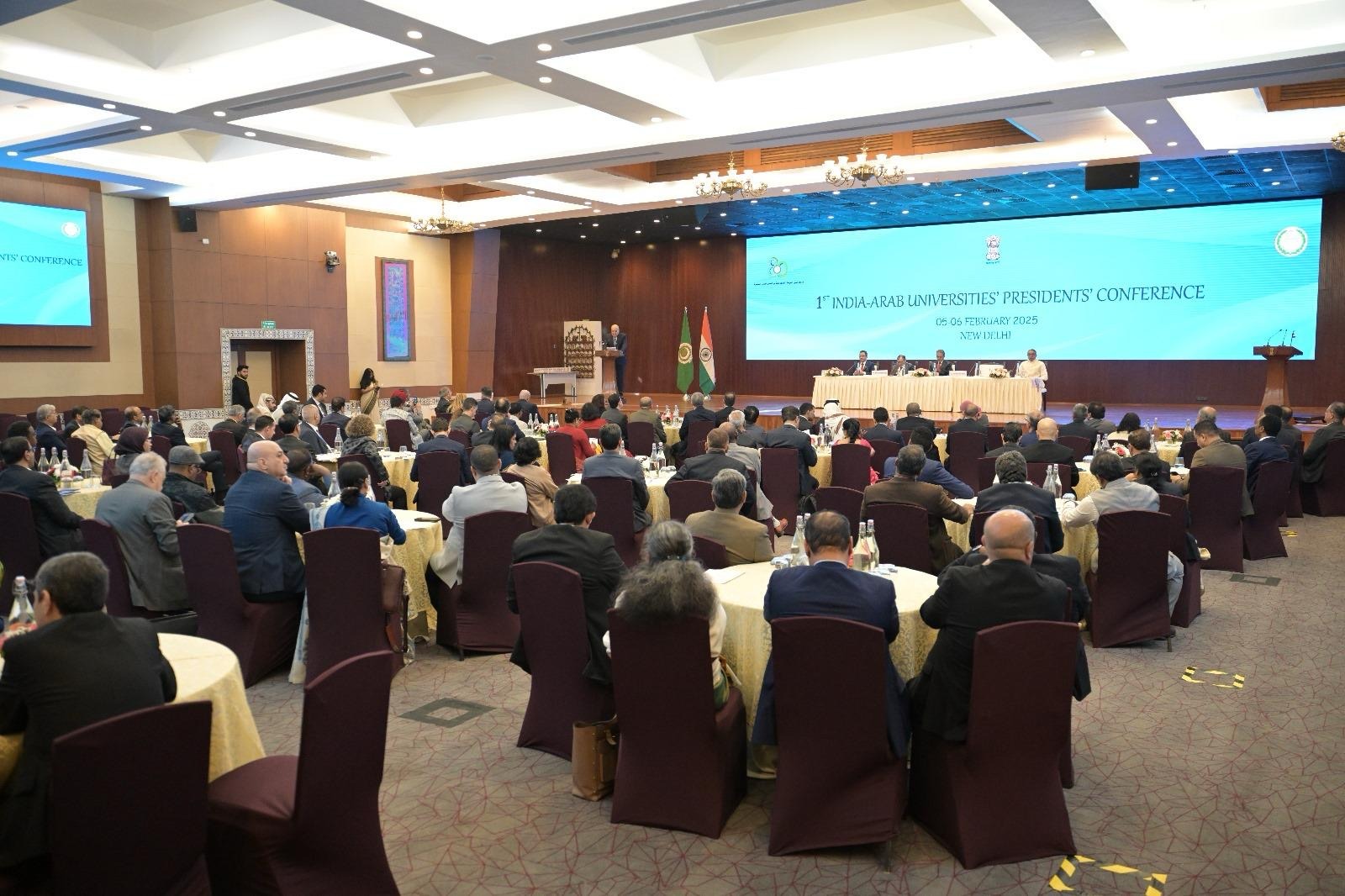
The conference concluded with a session on promoting faculty and student exchange and cooperation in curriculum development. The Secretary of UGC chaired the closing ceremony, delivering the valedictory address. Key outcomes and recommendations from the conference included:
- Establishing Joint Research Centres: To facilitate collaborative research and innovation.
- Enhancing Digital Learning Platforms: To improve access to quality education across borders.
- Mutual Recognition of Degrees: Developing standardized frameworks for recognizing academic qualifications.
- Faculty and Student Exchange Programs: Promoting cultural exchange and academic collaboration through structured exchange programs.
The 1st India-Arab Universities’ Presidents’ Conference successfully laid the groundwork for future collaboration, harnessing the potential of higher education to transcend national borders and foster a dynamic environment for academic excellence. This event marks the beginning of a new era in India-Arab educational relations, paving the way for a prosperous and innovative future.










